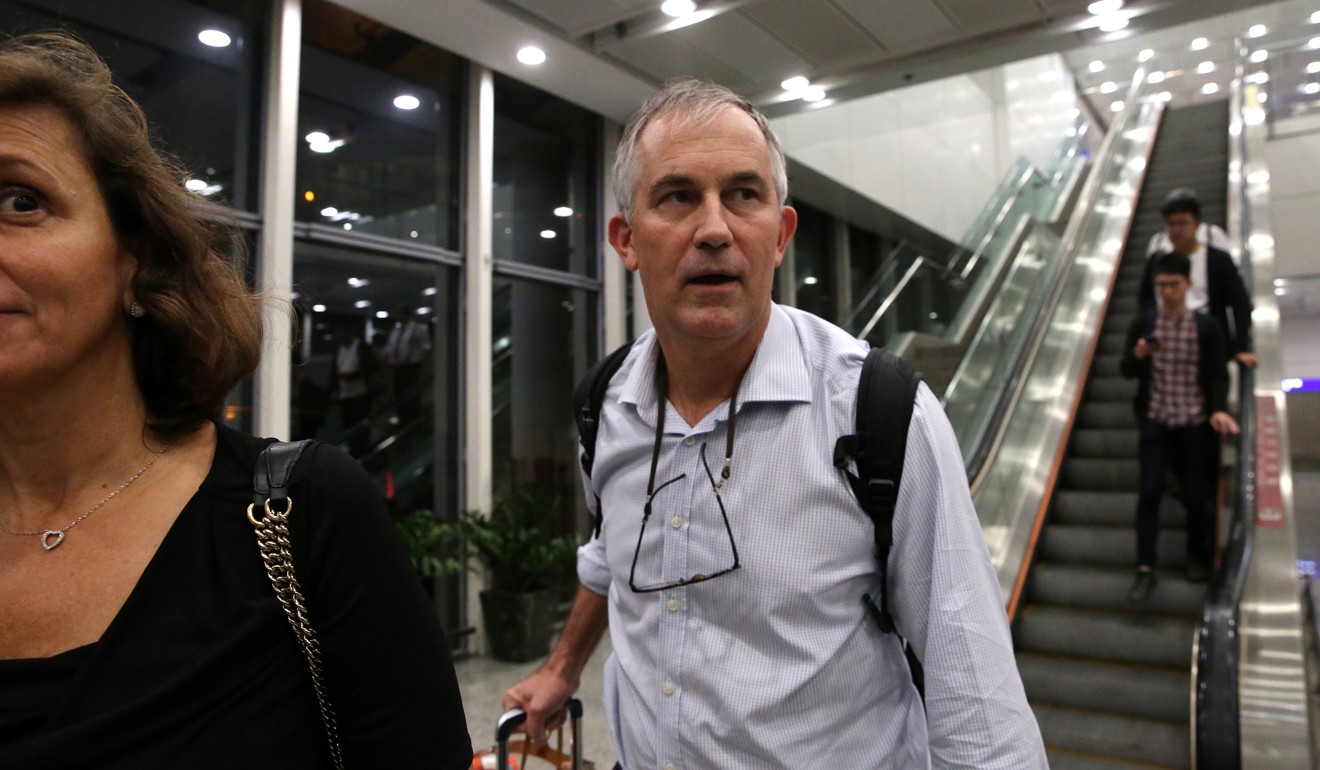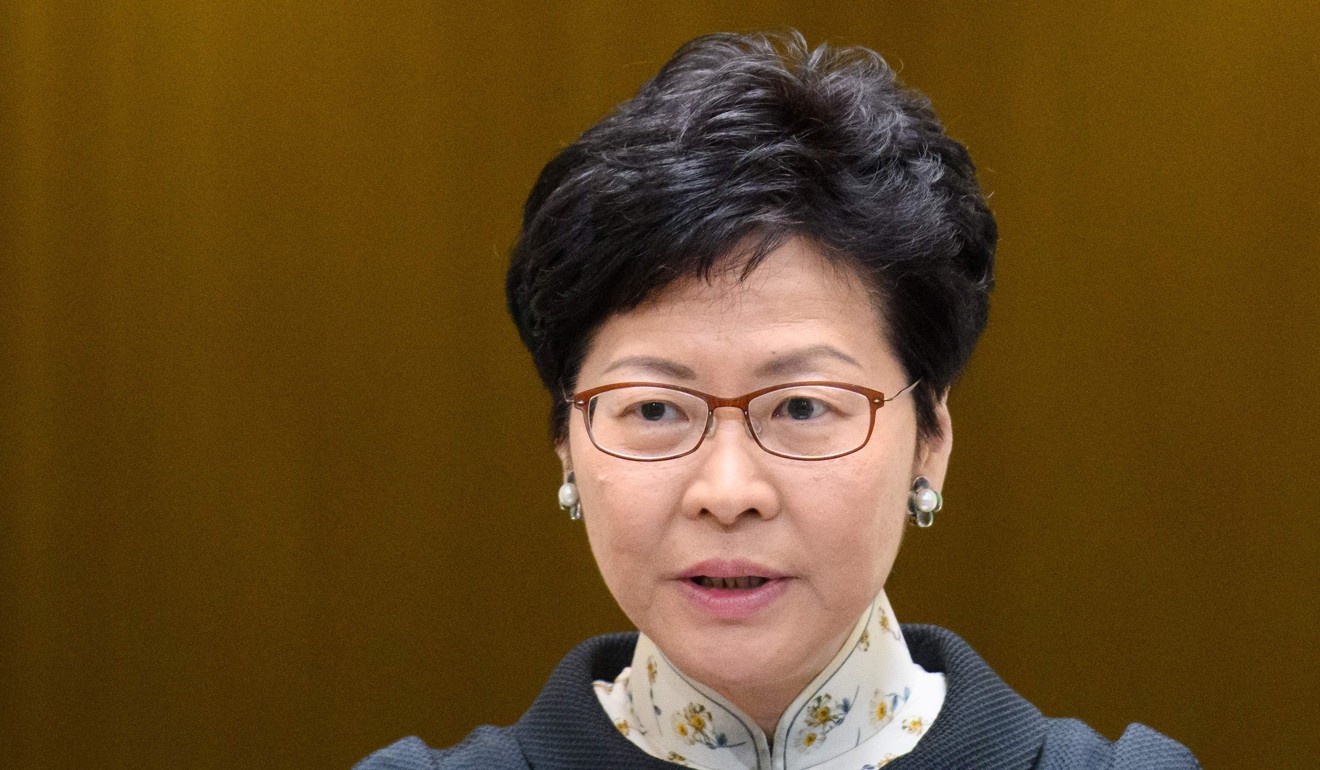
‘Untenable and unfair’ to link British journalist’s visa denial to US-Hong Kong Policy Act, city leader says
Chief executive refutes claim by British foreign secretary that decision affecting Financial Times’ Asia editor was ‘politically motivated’
Hong Kong’s leader has said any threats to the city’s special status under a US policy being made over the expulsion of a veteran British journalist would be “untenable and unfair”.

“In the absence of an explanation from the authorities, we can only conclude that this move is politically motivated,” Hunt said. “I urge the Hong Kong authorities to reconsider this decision.”
When asked by a journalist for her response to Hunt, Lam on Wednesday said the British authorities were “still producing” reports on Hong Kong every six months despite the handover taking place 21 years ago.
In every report I am sure there will be some criticism
“In every report I am sure there will be some criticism, one way or the other,” the chief executive added. “Or we have to explain that some of the criticism is unjustified.
“I was supposed to meet with Jeremy Hunt when he promised to come to Hong Kong ... but he did not. So I look forward to my next meeting with the foreign secretary.”
Describing Hong Kong as a staunch supporter of free and open trade, the chief executive said her administration had already raised objections to any sanctions.
“For another government to relate this with something which is more political in Asia … is even more untenable,” Lam said. “I must make it very clear that trade is beneficial to both sides.”
Hong Kong was the economy that produced the largest trade surplus for the US, she added, recalling what she told the American leader.
Lam then added: “So, it would be untenable and unfair to try to threaten us with that sort of language.”
Hong Kong’s special trade status as part of China was once a subject of scrutiny for US lawmakers.
Denial of journalist's visa sends ‘chilling message’, Financial Times says
The proposed legislation sought to amend the policy act and require the Department of State annually to certify whether the city was sufficiently autonomous to justify separate economic and legal treatment from the mainland.
The two bills were only referred to various congressional subcommittees. They were not carried forward and did not become law.

Lam refused to give the government’s reasons for denying Mallet’s visa, saying she would “never disclose” the details of or “respond to speculation” on individual cases.
Civic Party lawmaker Alvin Yeung Ngok-kiu said Hunt’s statement meant the Lam administration should no longer pretend nothing had happened and should explain the situation promptly.
“The answers by the chief executive and by the Hong Kong government so far are not convincing,” the lawmaker added. “[Remaining tight-lipped] would only harm Hong Kong further.”
But Lau Siu-kai, vice-chairman of the Chinese Association of Hong Kong and Macau Studies, a semi-official think tank, called Hunt’s comments “political rhetoric wielded for the political purposes of the Western countries”.
“In Western countries, most of the visa or entry denials are politically motivated, mainly because the applicants are considered a threat to national security or social order,” he said. “Those countries will not give specific explanations either.
“Those countries are just criticising the Hong Kong government because they have to, especially when their relations with China have been increasingly intense.”
He said the central government and local officials had drawn “a bottom line to defend national security in the long run. And it was a price better paid now than later”.
Lau dismissed the suggestion that Hong Kong authorities should bluntly state that Mallet had been denied a visa because he was considered a security threat.
Why Hong Kong didn’t need to evict journalist Victor Mallet
“On the one hand, it would create new political controversies that can’t be easily capped,” he explained. “And on the other hand, future decisions by the government might be impeded with such a precedent.”
A day after the American Chamber of Commerce issued a strongly worded statement warning that the visa rejection had sent a “worrying signal”, the Australian consulate in Hong Kong said it was “taking a close interest” in the matter.
On Tuesday, the Financial Times issued a statement saying it would appeal against the department’s decision “in the absence of an explanation from the Hong Kong authorities”.
However, lodging an appeal does not give Mallet the right to remain in the city, which could mean the veteran journalist would have to leave before Sunday.
Additional reporting by Alvin Lum



